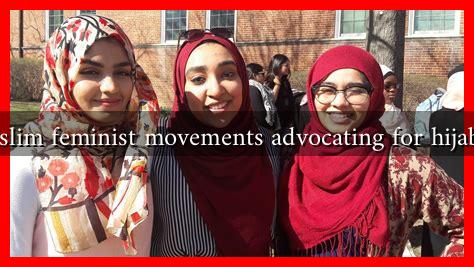-
Table of Contents
How are Muslim Feminist Movements Advocating for Hijab Acceptance?
The hijab, a traditional headscarf worn by many Muslim women, has become a symbol of both empowerment and oppression, depending on the context. In recent years, Muslim feminist movements have emerged to advocate for hijab acceptance, challenging stereotypes and promoting the idea that wearing the hijab can be a personal choice rather than a symbol of subjugation. This article explores how these movements are reshaping perceptions of the hijab and empowering women in the process.
The Intersection of Feminism and Faith
Muslim feminists argue that the hijab is not inherently oppressive but can be a form of self-expression and autonomy. They emphasize the importance of understanding the hijab within the broader context of Islamic teachings and cultural practices. Key points include:
- Personal Agency: Many Muslim women choose to wear the hijab as an expression of their faith and identity, asserting their right to make personal choices about their bodies.
- Countering Stereotypes: Muslim feminists work to dismantle the stereotype that all Muslim women are oppressed, highlighting diverse experiences and perspectives.
- Empowerment through Solidarity: Movements often emphasize community support, encouraging women to share their stories and experiences related to hijab-wearing.
Case Studies of Advocacy
Several organizations and movements have emerged globally to advocate for hijab acceptance. Here are a few notable examples:
- Muslim Women’s Network UK: This organization promotes the rights of Muslim women, including the right to wear the hijab without facing discrimination. They provide resources and support for women who experience backlash for their choice.
- Hijab Day: Initiated by the non-profit organization “World Hijab Day,” this event encourages non-Muslims to wear the hijab for a day to foster understanding and acceptance. It has gained traction in various countries, promoting dialogue about the hijab.
- Social Media Campaigns: Platforms like Instagram and Twitter have seen campaigns such as #HijabIsMyChoice, where women share their stories and experiences, challenging negative perceptions and celebrating their choices.
Statistics and Research
Research indicates that the perception of the hijab is changing, particularly among younger generations. A study conducted by the Pew Research Center in 2021 found that:
- Approximately 62% of Muslim women in Western countries reported feeling empowered by their choice to wear the hijab.
- Over 70% of respondents believed that wearing the hijab should be a personal choice, free from societal pressure.
These statistics highlight a growing acceptance of the hijab as a personal choice rather than a symbol of oppression, reflecting the impact of feminist movements advocating for hijab acceptance.
Challenges Faced by Muslim Women
Despite the progress made by Muslim feminist movements, challenges remain. Some of these include:
- Discrimination: Many women face discrimination in workplaces and educational institutions due to their hijab, leading to calls for policy changes and greater awareness.
- Media Representation: The portrayal of Muslim women in media often leans towards negative stereotypes, which can perpetuate stigma and misunderstanding.
- Internal Community Pressures: Some women experience pressure from within their communities regarding their choice to wear or not wear the hijab, complicating the narrative of personal agency.
Conclusion
Muslim feminist movements are playing a crucial role in advocating for hijab acceptance, emphasizing personal choice, empowerment, and solidarity among women. By challenging stereotypes and promoting understanding, these movements are reshaping the narrative around the hijab, allowing for a more nuanced view that recognizes the diversity of experiences among Muslim women. As society continues to evolve, the dialogue surrounding the hijab will likely grow, fostering greater acceptance and respect for individual choices.
For more information on the intersection of feminism and faith, you can visit Muslim Women’s Network UK.


